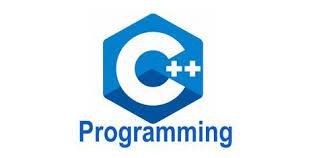
Course Learning Outcomes
After completion of this course, the learner will be able to:
1. Describe the fundamental concepts of Operating System.
2. Solve the various types of Scheduling Algorithms for better utilization of external memory.
3. Attain the knowledge about deadlock detection algorithms.
4. Demonstrate the components and aspects of concurrency management.
Course Learning Outcomes
After completion of this course, the learner will be able to:
1. Get expertise on the Unix OS platform.
2. Develop and debug C programs created on UNIX platforms.
3. Apply the process of installing standard libraries on an Operating System.
4. Classify Shell Programming in Linux.

Course Learning Outcomes
After completion of this course, the learner will be able to:
1. Discuss about the programming techniques to solve problems or errors in the C++ programming language.
2. Attain the conceptual knowledge of array and string.
3. Describe the constructor and class member function.
4. Analyse the inheritance with the understanding of early binding and late binding.
Course Learning Outcomes
After completion of this course, the learner will be able to:
1. Classify the object-oriented concepts and their implementation.
2. Use the concepts of array and string using C++.
3. Implement a given program solved by C++.
4. Grasp the concept of implementing the constructors with classes.
Course Learning Outcomes
After completion of this course, the learner will be able to:
1. Identify and utilize various tools for multimedia processing.
2. Design the images with appropriate tools from the toolbox.
3. Apply practical knowledge to create image animations.
4. Implement the experiments with graphics and text information.
Course Learning Outcomes
After completion of this course, the learner will be able to:
1. Acquire the basic knowledge of Environment study.
2. Demonstrate an understanding of ecosystems and their functions.
3. Examine the individual's role in pollution prevention.
4. Evaluate the impact of information technology on the environment and human health.
Course Learning Outcomes
After completion of this course, the learner will be able to:
1. Understand the significance of HRM, distinguish it from Personnel
Management (PM) and identify HR challenges.
2. Apply HRM principles to practical situations such as recruitment, selection, and induction.
3. Analyse performance appraisal methods and training programs.
4. Evaluate the effectiveness of HR policies like promotion and transfer. Develop HR strategies and procedures.
Course Learning Outcomes
After completion of this course, the learner will be able to:
1. Discuss about the basic concepts and technologies used in the field of E-Commerce and Governance.
2. Apply their knowledge of various Electronic Payment Systems in practical scenarios.
3. Analyse and differentiate between various Governance Process Models.
4. Evaluate Internet trading relationships, including Business-to-Consumer (B2C), Business-to-Business (B2B), and Intra-organizational
dynamics.